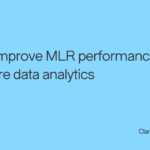The strategic use of competitive intelligence data is increasingly becoming a crucial factor for healthcare payers looking to make informed decisions around strategic market expansion and strengthen their market position. By harnessing comprehensive data analytics, health plans can gain valuable insights into competitor benchmarking, enabling them to adapt and refine their strategies to stay ahead of the game. This data-driven approach also empowers payers to more efficiently inform product development, optimize pricing strategies, identify market expansion opportunities, and enhance provider network optimization — ultimately giving insurers a competitive edge and efficient network management. Health plans can leverage competitive intelligence benchmarking to sharpen their decision-making and bolster market position in several strategic ways. By incorporating data around key metrics such as enrollment numbers, market share, financial performance, and customer satisfaction ratings, payers can conduct a comprehensive analysis that uncovers their standing relative to competitors. Enrollment numbers offer insights into the consumer base size and growth potential, while market share data highlights the payer’s reach and influence in different regions or sectors. Assessing financial performance through metrics like revenue growth, claim costs, and operational efficiency can reveal economic strengths and weaknesses. Moreover, customer satisfaction ratings provide a direct measure of service quality and customer loyalty, which are crucial for retaining members and enhancing reputation. This strategic benchmarking allows payers to pinpoint specific areas for improvement and formulate targeted strategies to surpass competitors. By drawing insights from comprehensive performance data, health plans can refine their operational efficiency as well as cultivate a more customer-centric approach to better position themselves as market leaders. Competitive intelligence data is crucial for health plans in developing both new and existing products. Through analysis of competitors’ products and services, payers can better understand market trends, consumer needs, and competitor strategies, ensuring that their offerings are both innovative and aligned with market demands. Payers can identify gaps in coverage and evaluate customer needs unmet by competitors, which helps them strategically position themselves to attract a larger customer base. This approach ensures the relevance and competitiveness of a payer’s offerings and fosters innovation in the healthcare insurance ecosystem. Competitive intelligence data also plays a pivotal role in helping health plans develop effective pricing strategies. By analyzing market trends, competitor pricing, and consumer demand, health plans can set prices that are competitive yet profitable. This data-driven approach ensures that their offerings are attractively priced in comparison to competitors, appealing to a broader customer base. Effective pricing strategies, informed by comprehensive competitive intelligence, are crucial to striking a balance between attracting customers and sustaining a financially viable business model. The strategic use of intelligence data also enhances payers’ ability to penetrate new markets and cater to diverse customer populations. It provides deep insights into unmet needs, emerging market trends, and demographic shifts, guiding health plans to identify new markets or segments with high potential. Health plans can pinpoint opportunities for market expansion into new geographic regions and strategically target underserved patient segments. This enables insurers to tailor their marketing and sales strategies, guaranteeing a more precise and effective outreach to specific demographics with unique healthcare needs. Additionally, examining competitors’ provider networks is vital for health plans to secure a strong network of healthcare providers — a pivotal element in attracting and retaining customers. By analyzing industry trends, competitor network compositions, and provider performance metrics, health plans can make informed decisions about which providers to include in their networks. This strategic approach helps ensure that their networks are both cost-effective and aligned with member needs, offering high-quality care and accessibility. Effective provider network management, guided by competitive intelligence, enhances member satisfaction, improves health outcomes, and positions the health plan as a competitive choice in the market, crucial for sustaining growth and market relevance. Competitive intelligence data is absolutely essential for health plans seeking a competitive edge in the complex and ever-changing healthcare industry. By analyzing competitors’ performance metrics, insurers can refine strategies for improved market positioning and operational efficiency. In-depth scrutiny of products, services, and pricing strategies allows for the development of innovative insurance plans that cater to evolving customer needs. Furthermore, strategic examination of provider networks not only ensures robust coverage, but also positions payers as customer-centric entities, fostering both satisfaction and competitiveness in the market landscape. Ultimately, the strategic use of data emerges as a cornerstone for health plans aiming not only to survive, but thrive. To effectively leverage competitive intelligence data, payers need to invest in data collection, analysis tools, and expert personnel who can interpret the data and provide actionable insights.Payer applications of competitive intelligence
Product development opportunities
Competitive intelligence and payer pricing strategies
Market expansion and targeting
Provider network optimization
- Author Details





